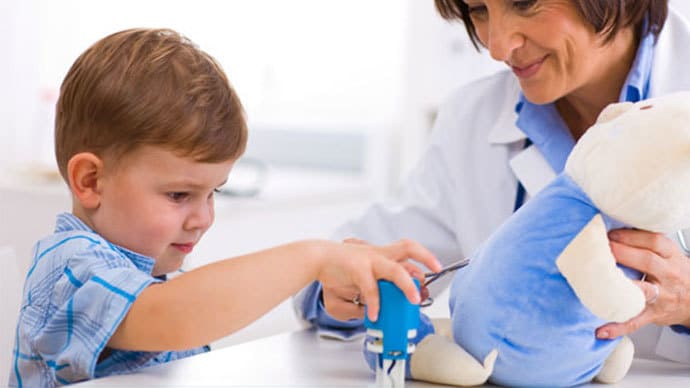Autism is a neurobehavioral disorder that impairs and generally slows down language and communication skills. This greatly affects the social interaction skills on the part of the autistic person. Autism is characterised by rigid repetitive movements.
Past Attitudes Towards Autism
In the early days, before doctors fully understood the condition, children with Autism were routinely committed to mental institutions. In the 1940s and 1950s researchers attributed Autism in children to a ‘cold upbringing’ by their mothers. It wasn’t until 1964 that Bernard Rimland conclusively discounted this theory and showed that Autism is in fact a biological condition.
Attitudes die hard, however, and perceptions still linger, even among a section of the medical profession, that persons with Autism should be committed to an institution. This is the uncomfortable reality that Marty Kelley, mother of Kenneth Kelley who has Autism, had to confront. When the doctor who was treating Kenneth suggested that the boy be placed in an institution, Marty knew it was time to seek a second opinion.
As a child, Kenneth displayed all the classic signs of Autism. He would also scream all day and showed signs of becoming violent. The family’s decision to seek Stem Cell Therapy probably saved the boy’s life and certainly kept him out of a mental institution. It has been 9 years since Kenneth had Stem Cell Therapy with Umbilical Cord Tissue Stem Cells. Now 16, Kenneth is like any other teenager looking forward to acquiring his driver’s license and enjoying his favourite subjects in school.
Stem Cells and Autism
Stem cells are the body’s own ‘repair kit’. They can be defined as unspecialised cells that have the capacity to divide throughout life and to develop into many different kinds of specialised cells. With a virtually limitless supply the body is able to use these cells to repair and renew its tissues.
This versatility of stem cells makes them the ideal treatment for a whole range of disorders that have been considered difficult to treat in the past. Apart from Autism, Stem Cell Therapy has been used to successfully treat and manage Multiple Sclerosis (MS), Spinal Cord Injury (SCI), Chronic Kidney Disease, Cerebral Palsy, Ataxia and Amyotrophic Lateral Sclerosis (ALS), among other conditions.
Attitudes are slowly changing however, and as parents become more informed they recognise that Autism is a manageable condition. Occupational Therapy and Speech Therapy have been used in an attempt to treat Autism in the past. The results, however, have produced only marginal improvement. The successful use of Stem Cell Therapy is bound to further erode the stigma that is associated with Autism as parents realise the benefits of a safe and effective treatment option for the condition.
Unique Access Medical has been at the forefront in combining the best of conventional medicine with holistic therapies. We strive to provide the best available medical care today and our patients (past and present) are always happy to testify to this. A case in point is this informative interview with the parents of Poyraz who has Autism. They discuss their 8 year old son’s Stem Cell Therapy for Autism and the difference it has made in all their lives.
We welcome any queries that you might have. Contact us for more information on how Stem Cell Therapy is changing lives for the better.
H/T: Fox Bangor




 English
English